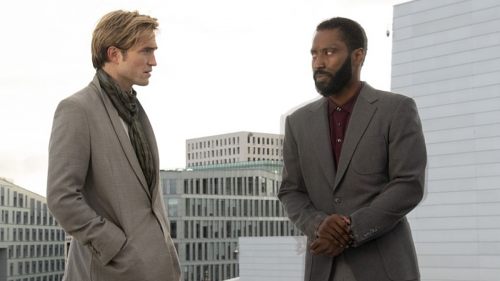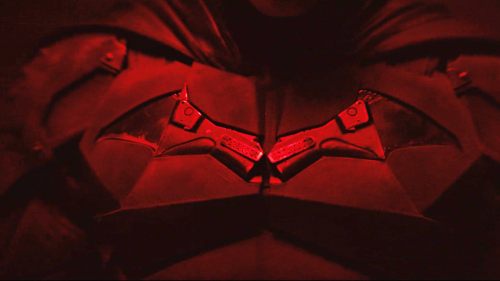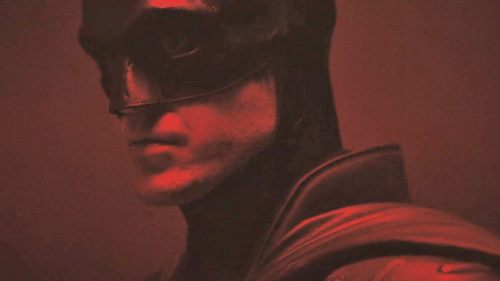THE LIGHTHOUSE Review: Reaching To The Heavens
Two men, one elder (Willem Dafoe) and one younger (Robert Pattinson), visit a remote New England isle in the late nineteenth century to keep watch over the lighthouse stationed there. The older man is the younger’s superior, and in contravention of their work manual, sets the younger man to the majority of the manual labor necessary to keep the lighthouse running. Meanwhile, the older man takes a nightly post guarding the light at the top of the tower, only coming down during the day to order around and berate the younger man for his laziness, inexperience, and poor attitude, though the younger man feels he has done nothing to deserve such treatment. In fact, the younger man starts to resent his disproportionate share of the work and the older man with the power to dock his wages, and this resentment leads the young man to covet the older man’s position at the top of the tower, with the hypnotic and elusive power of the light.
From there, writer-director Robert Eggers’ The Lighthouse (co-written by Robert’s brother Max Eggers) spins off into an alcohol-fueled, psychedelic fever dream, where reality starts to break down, time stops holding meaning, and the appearance of any face other than Dafoe’s or Pattinson’s is cause for curiosity and alarm. It’s a story propelled by unapologetic bodily excretions, fistfights with seagulls, ocean-drenched sexual encounters, and the questionable existence of an Eldritch tentacular monstrosity. Shot in black and white on 35 mm film in a nearly square aspect ratio, the cinematography by Jarin Blaschke gives the film a perpetually claustrophobic feeling, framing faces and machinery in sharply contrasting light and shadow to convey the shifting mystery of these men’s intentions and their deteriorating mental state.
This is exemplified by two extremely committed performances by Dafoe and Pattinson, who play off each other so naturally that it’s easy to forget that their period-accurate accents aren’t legitimate. Dafoe’s old man is a mysterious figure, jovial and cordial around the dinner table but possessive and distrustful when it comes to his superior duties. He abuses the powers of rank to give himself the easiest and most gratifying work while justifying the mistreatment and overworking of his young companion in long, overly articulate speeches that convey more bluster than meaning. Pattinson’s character, meanwhile, is quiet about his past but is visibly distressed by the inequitable division of labor and the squalor in which they live, something he is seemingly expected to lift them out of solely through his Herculean and diminishing efforts. This drives him to frustration, paranoia, and anger that erupts in severe and shocking ways, arguably worsening their confinement with one another out of spite even as he's sympathetically driven by the brink of tolerable treatment.
These performances are in service to a narrative so versatile and rich in symbolic meaning that it threatens to be overwhelming. The intergenerational conflict is obvious and treats neither party as entirely justified or unjustified. Experience and abuse of power butt heads against youthful ability and arrogance. And just underneath these raging forces are questions of personal identity, past and present selves, predestined emotional development, sexual need, self-hatred, self-love, self-destruction, gaslighting, alcoholism, and interhuman connection. It’s a film where I hesitate to tell you what these men even call one another, because their very names, which are revealed only after the first act, are subject to dissection and analysis. These characters are defined by their contrasts and antagonism, but their portrayal is incredibly intimate and tender in moments of particular extremity, calling into question what it means to truly hate – or love – someone.
The Lighthouse is persistently intense, emotionally nerve-wracking, unnervingly horny, and surprisingly funny at times. It frames its characters as mortals who deign to possess the glory of keeping a literal monolith topped with heavenly light, a Promethean torch that mere humans may desire but can never truly understand. In that sense, it’s possible that the Eggers brothers have pushed beyond the limits of artistic coherence, telling a story that is so much sound and fury that it signifies nearly anything and everything. But for what that ride is worth, The Lighthouse is a cinematic monument worth overthinking, even when (or perhaps especially while) you’re giggling at an inopportune fart.



